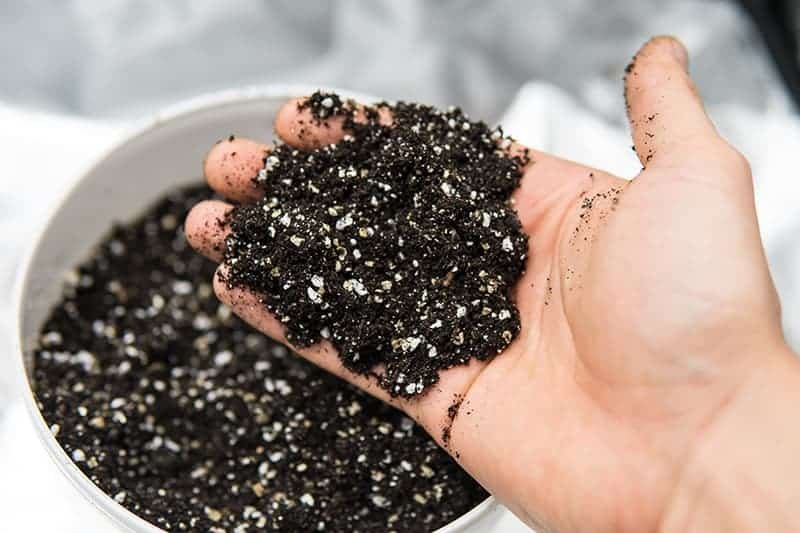Introduction to Vermiculite
Vermiculite, a formed by the weathering of certain rocks, has gained popularity in horticulture due to its unique properties. It is a versatile material that aids in improving soil moisture retention, providing aeration to plants, and enhancing seed germination. In this article, we will explore the various uses benefits of vermiculite in horticulture.
Uses of Vermiculite in Horticulture
Vermiculite finds multiple applications in horticulture. Its primary use lies in improving soil structure and drainage. The mineral’s ability to absorb and retain water makes it an excellent additive in potting mixes, providing a suitable growing environment for plants. Additionally, vermiculite can be used as an alternative to peat moss, making it an eco-friendly choice for gardeners.
Vermiculite Applications in Gardening
Gardening enthusiasts can make the most of vermiculite’s properties by using it in various ways. Adding vermiculite to compost helps prevent it from compacting, allowing for better airflow and root development. Its use as a top dressing for lawns assists in retaining moisture and protecting against extreme temperatures. Vermiculite is also employed in seed starting, creating a favorable environment for seed germination and ensuring healthy plant growth.
Vermiculite for Gardening: Benefits and Tips
The benefits of incorporating vermiculite into gardening practices are numerous. Apart from its water retention capabilities, vermiculite can improve nutrient availability to plants. It helps maintain a neutral pH, preventing soil acidity or alkalinity issues. Furthermore, vermiculite acts as an insulator, protecting plants’ roots from temperature fluctuations.
When using vermiculite in gardening, it is crucial to mix it well with other materials, such as compost or soil. The recommended ratio is 1 part vermiculite to 3 parts soil or compost. Additionally, when watering plants, vermiculture-aided soil requires less frequency due to its improved moisture retention.
The Role of Vermiculite in Horticulture
Vermiculite plays a vital role in horticulture by improving the overall quality of soil. Its ability to retain moisture reduces water stress on plants and ensures better nutrient absorption. The improved soil structure facilitated by vermiculite promotes healthy root growth and enhances microbial activity in the soil.
Vermiculite as an Insulation Material
Apart from its applications in gardening, vermiculite is widely used as an insulation material. Due to its lightweight and fire-resistant nature, vermiculite-based insulation is commonly used in construction projects. It provides thermal resistance, reducing heat transfer and increasing energy efficiency in buildings.
Vermiculite in Construction Projects
In construction projects, vermiculite finds its place in fireproofing materials, acoustic panels, and concrete mixes. Its fire-resistant properties make it an ideal choice for insulating chimneys, fireplaces, and stoves. Vermiculite-based concrete mixes offer lighter weight and better insulation compared to traditional concrete, making them suitable for various applications.
Understanding Vermiculite Gardening Tips
For successful vermiculite gardening, it is important to follow some essential tips. Ensure that the vermiculite you purchase is free from harmful chemicals or contaminants. Observe the correct ratio while mixing vermiculite with soil or compost. Use vermiculite for indoor and outdoor gardening, as it is suitable for both environments. Moreover, store vermiculite in a dry place to prevent it from absorbing moisture.
Enhancing Soil with Vermiculite Additive
Vermiculite’s exceptional ability to retain moisture aids in enhancing soil fertility. By adding vermiculite as an additive, gardeners can improve water availability for plants and prevent soil erosion. Vermiculite also reduces nutrient leaching, increasing the chances of nutrient uptake by plant roots.
Exploring Vermiculite for Hydroponics
Hydroponic systems rely on vermiculite’s water retention properties to create a suitable growing medium. Vermiculite acts as a natural moisture reservoir, ensuring continuous water supply to hydroponically grown plants. Its neutral pH contributes to the stability of the system without interfering with nutrient solutions.
Where to Buy Vermiculite: Finding Suppliers
Vermiculite is readily available at garden centers, nurseries, and online suppliers. Local agricultural supply stores may also stock vermiculite for horticultural purposes. It is recommended to research and compare prices from different suppliers to ensure quality and affordability.
Insights into Vermiculite Mining Process
Vermiculite mining involves extracting the mineral through open-pit techniques. Mined vermiculite undergoes a heating process that expands the particles, resulting in the characteristic light and fluffy structure. After expansion, the vermiculite is sorted and graded based on its particle size for various applications.
Methods of Processing Vermiculite in Horticulture
To optimize vermiculite for horticultural use, it undergoes specialized processing techniques. After expansion, the vermiculite can be crushed, further screened, or pelletized to achieve specific particle sizes suitable for different gardening applications. These processing methods ensure the availability of high-quality vermiculite for horticultural purposes.
In conclusion, vermiculite’s benefits in horticulture are immense. Its ability to retain moisture, improve soil structure, and enhance seed germination makes it an essential component in gardening. Additionally, vermiculite finds versatility in construction projects and hydroponics, further emphasizing its importance. By incorporating vermiculite into gardening practices, gardeners can create favorable conditions for plant growth and ensure healthy and thriving gardens.

